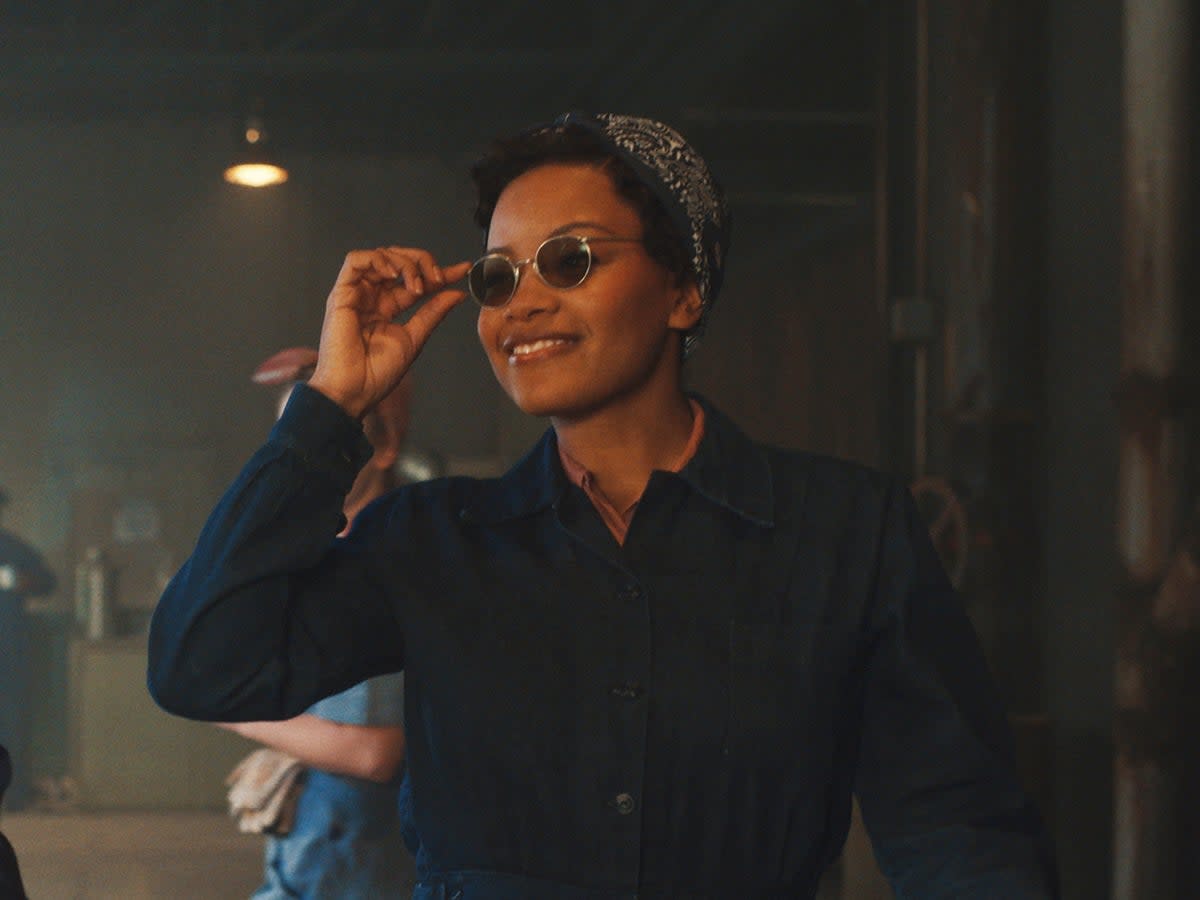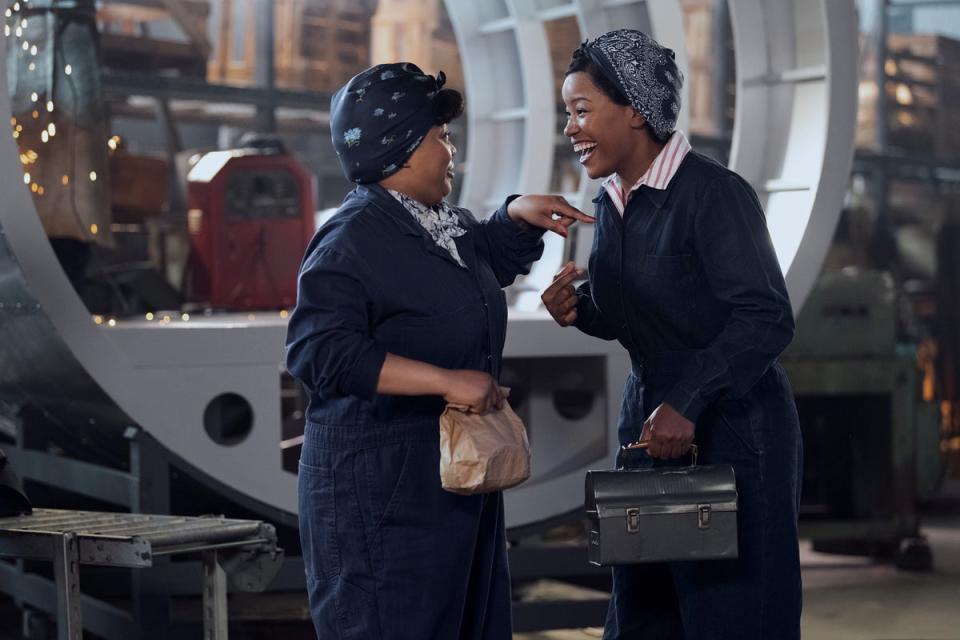A League of Their Own: Chanté Adams is the Black breakout player the original failed to include

Upon its 1992 release, A League of Their Own was an instant success. Penny Marshall’s fourth film in the director’s chair had a marquee cast of Tom Hanks, Madonna, Rosie O’Donnell, and Geena Davis and earned critical acclaim, grossing over $132.4m worldwide. Its fictionalised take on the Second World War era of the All-American Girls Professional Baseball League – a league for white and white-passing women born out of desperation to keep America’s favourite pastime alive as men were drafted to war – was one of the first female-driven sports movies. However, it wasn’t perfect. Disregarding vital civil rights history, it whittled 60 years of racial segregation in baseball down to a 15-second sequence.
Thirty years later and Marshall’s neglect has opened a door for Broad City’s Abbi Jacobson and Will Graham’s (Mozart in the Jungle) new co-created eight-episode series, A League of Their Own. While their TV reimagining of the cult classic may lack the original’s megastar power, it certainly has a secret weapon of its own: 27-year-old Detroit-born actor Chanté Adams. Leading the thoughtfully crafted drama-comedy as rebellious queer Black woman Max Chapman, Adams proves essential to the reinterpretation’s expansion into race and sexuality that the original only alluded to.
Midway through Marshall’s movie, a rogue ball lands near the bullpen. An unnamed Black woman picks it up, and after Gena Davis’s Dottie Hinson smiles and nods for it to be thrown to her at first base, the woman ignores the request and hurls it perfectly over Dottie’s head to the pitcher on the mound. Marshall later acknowledged this all too brief scene was a nod to Mamie Johnson, the first female Black pitcher to play in the male Negro Leagues, a segregated league established at the turn of the 20th century, influenced by racist Jim Crow laws.
In a recent interview with The Independent, Jacobson explained that this scene provided inspiration for Max, whose spunky characteristics pull from Johnson, Connie Morgan, and Toni Stone, the only three women to play in the Negro Leagues before its eventual 1960s disbandment. Adams carries nearly half of the series’ screen time, breathing precious life into Max, a fiery woman who’s sure of herself on the field.
When Max is outright turned away at the All-American Girls Professional Baseball League because of the colour of her skin, she remains confident her skills are worthy of being seen. The rejection further fuels her determination. She marches her way over to the town’s factory league, a mix of white and Black all-male welders, and begs for a moment to prove herself. Eventually, her overconfidence becomes her downfall. When she blows her shot at making the team, she’s forced to reckon with who she is beyond her failed dream. “It’s time for me to figure out who I am without [baseball],” she concedes.
Before long, Max is taking stock of her life, once again recognising the people and values she’d cast aside. For years, Max had dismissed her mother’s lifelong vision of her taking over the family’s hair salon. Now she uses the pair’s differences to strengthen their bond. Time spent away from the field allows her to gain greater insight into who she is as a Black queer woman outside of baseball. What she’s left with is a greater passion to return to the sport even stronger.
During a panel at the show’s Tribeca Film Festival premiere, Adams admitted that before the cast’s lengthy baseball training, she had no prior experience of the game. She even admitted to exaggerating her capabilities to land the role. Yet, her onscreen skill would lead anyone to believe otherwise – Adams’ commitment to earning the role shows evidence of her own grit.

The significance of Max’s portrayal, and who she represents, will surely leave behind a legacy, perhaps making the reimagining into its own kind of cult classic. Either way, her inclusion takes an ignored story and transforms it into a great one. As Adams said in a recent Rolling Stone interview, the importance of this show is “to really shed light and push those stories to the forefront”. Now Mamie Johnson, Toni Stone and Connie Morgan’s achievements are finally where they should be.
‘A League of Their Own’ is available now to stream on Prime Video

 Yahoo News
Yahoo News 
